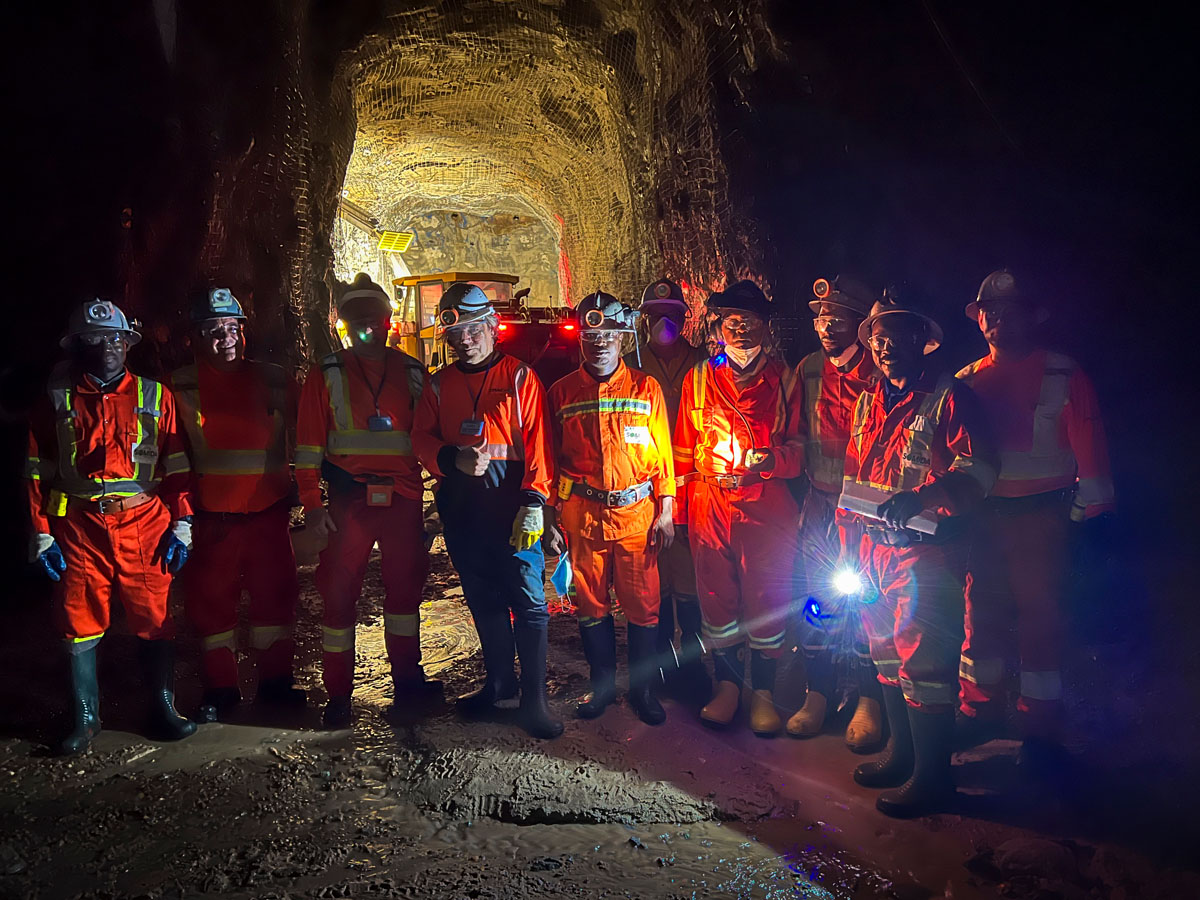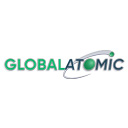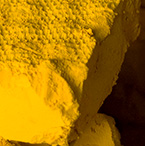Global Atomic Corp - Pioneering New Uranium Supply in a Tightening Market

Global Atomic advances Dasa uranium project in Niger, positioned as only new greenfield mine globally. Strong gov't relations, but financing challenges remain.
- Global Atomic recently completed a $20 million private placement to continue operations while working with bankers on project financing.
- The company has good relations with the Niger government, which sees them as a "poster child" for investment in the country.
- Global Atomic's Dasa project is in full build-out, with 450 people currently working on site, expected to increase to 600-700.
- The company is exploring alternative financing options, including potential joint ventures with industry players.
- Global Atomic believes it is the only greenfield uranium project currently advancing to production globally.
Global Atomic Corp: Advancing the World's Only Greenfield Uranium Project
Global Atomic Corporation, a Canadian company listed on the Toronto Stock Exchange, is at a critical juncture in its development. As the world grapples with energy security concerns and the need for clean, reliable baseload power, uranium is increasingly seen as a vital part of the solution. Global Atomic is positioned to capitalize on this trend with its Dasa project in Niger, which the company claims is the only greenfield uranium project currently advancing to production globally.
Project Progress & Operational Update
Global Atomic's flagship Dasa project in Niger is making significant strides towards production. The company has ramped up its workforce to 450 people on site, with plans to increase this to 600-700 in the coming months. This expansion reflects the project's transition from early-stage development to full-scale construction.
Roman provided details on the project's current status:
"We're in full buildout of the mine right now. We're down at the ore zone, we've got 7,000 tons of development ore on surface. We're paving the ramp now, the new section that we've built. We're down about 1,200 meters with our development and doing cross-cuts now on ore strike headings along the strike of the ore body in the footwall."
These operational milestones demonstrate tangible progress towards production. The company has also made headway on surface infrastructure, with Roman noting that "all of our earthworks are in full swing." A new 250-man camp has recently arrived on site, which will house the expanded construction crew.
Interview with President & CEO, Stephen G. Roman
Financing Strategies
One of the most pressing questions for investors is how Global Atomic plans to finance the Dasa project's development. The company recently completed a $20 million private placement, which Roman described as necessary "to keep rolling for the next few months." However, this is just a stopgap measure as the company works on securing more substantial project financing.
Global Atomic is primarily focused on securing bank financing, working with a U.S. banker. However, recent events in Niger, including the suspension of permits for other uranium projects, have caused some nervousness among potential lenders. Roman expressed confidence that these concerns are being addressed:
"I think we've had the bank concerns answered. We're expecting that they will be going to credit committee, but you know what, we are also talking to other sovereigns that are interested that are working in Niger at the moment."
The company is keeping its options open, exploring potential joint ventures and discussions with industry players, including Chinese companies active in Niger. Roman emphasized the project's attractiveness:
"It is a fabulous project and it's going to be built one way or the other."
Government Relations & Political Environment
A critical factor for any mining project in Africa is the relationship with the host government. Global Atomic appears to have cultivated strong ties with Niger's government, which Roman describes as very supportive of the project. He recounted recent interactions with government officials:
"We spoke with the government, we've had a couple of meetings with the mines ministry, we've had communications with the president. We get along with people that run the country. They've been up to visit our site. They were very, very impressed."
This positive relationship is crucial, especially given recent political events in Niger, including the closure of the border with Benin. Roman expressed optimism that these issues would be resolved soon, noting ongoing high-level talks between the two countries.
Market Context & Uranium Outlook
Global Atomic is advancing the Dasa project against a backdrop of growing demand for uranium. Despite recent price volatility, Roman remains bullish on the market's fundamentals:
"The uranium price right now is still above $80 a pound. I mean, holy smoke, we did our feasibility at 35, we did another one at 75. By the time this project starts running and shipping in 2026, the price is going to be even higher than that."
He emphasized the persistent global deficit in uranium supply, dismissing recent announcements of increased production as insufficient to meet growing demand. This supply-demand imbalance underpins the investment thesis for Global Atomic.
Competitive Landscape
Global Atomic positions itself as a frontrunner in bringing new uranium supply to market. While there are other projects in development or restarting production, Roman argues that Dasa stands out:
"We're still the only greenfield project in the world at this point. So, I still think that some of the other ones that are looking very promising are still at least five, maybe ten years out."
This first-mover advantage could be significant in a market hungry for new supply sources.
The Investment Thesis for Global Atomic Corp:
- First-mover advantage: Global Atomic's Dasa project is positioned as the only greenfield uranium project advancing to production globally.
- Strong fundamentals: The project's economics look favorable even at conservative uranium prices, with potential upside as prices rise.
- Government support: The company has cultivated strong relationships with the Niger government, reducing political risk.
- Advanced stage: With construction underway and key components ordered, the project is beyond many early-stage risks.
- Market timing: The project is on track to begin production in 2026, potentially coinciding with a period of significant uranium supply deficit.
Global Atomic Corp is making significant progress on its Dasa uranium project in Niger, positioning itself as a potential leader in new uranium supply. The company's strong government relations, advanced project status, and flexible financing approach are positive factors. However, investors should carefully consider the risks associated with project development in Niger and the volatile nature of the uranium market. As the global demand for clean baseload power grows, projects like Dasa could play a crucial role in meeting future energy needs, potentially offering substantial returns for risk-tolerant investors.
Macro Thematic Analysis
The global push for clean energy and reduced carbon emissions is driving a resurgence of interest in nuclear power. As countries seek to balance energy security with climate goals, uranium is increasingly seen as a critical component of the energy mix. This macro trend underpins the investment thesis for companies like Global Atomic Corp.
Several factors are contributing to a potentially bullish outlook for uranium:
- Energy security concerns: Recent geopolitical events have highlighted the importance of domestic energy production, with nuclear power offering a stable, baseload option.
- Climate change mitigation: Nuclear power's low carbon footprint makes it an attractive option for countries aiming to reduce greenhouse gas emissions while maintaining reliable power generation.
- Technological advancements: New reactor designs, including small modular reactors (SMRs), are expanding the potential applications of nuclear power.
- Supply deficit: Years of underinvestment in uranium exploration and development have led to a looming supply shortage, just as demand is expected to increase.
- Policy support: Many countries are implementing policies supportive of nuclear power, including extending the life of existing plants and planning new builds.
However, challenges remain, including public perception issues, waste management concerns, and the high upfront costs of nuclear plants. Despite these hurdles, the overall trend appears favorable for uranium producers.
As Stephen Roman stated:
"There's still a massive deficit in the uranium supply globally. This little blip, Kazatomprom, it's just ridiculous. I mean, two, three, four million pounds or whatever makes it not even a dent in the deficit out there right now."
This quote encapsulates the opportunity in the uranium market - a significant supply-demand imbalance that could drive prices higher and benefit well-positioned soon-to-be producers like Global Atomic Corp.
Analyst's Notes




Subscribe to Our Channel
Stay Informed












































